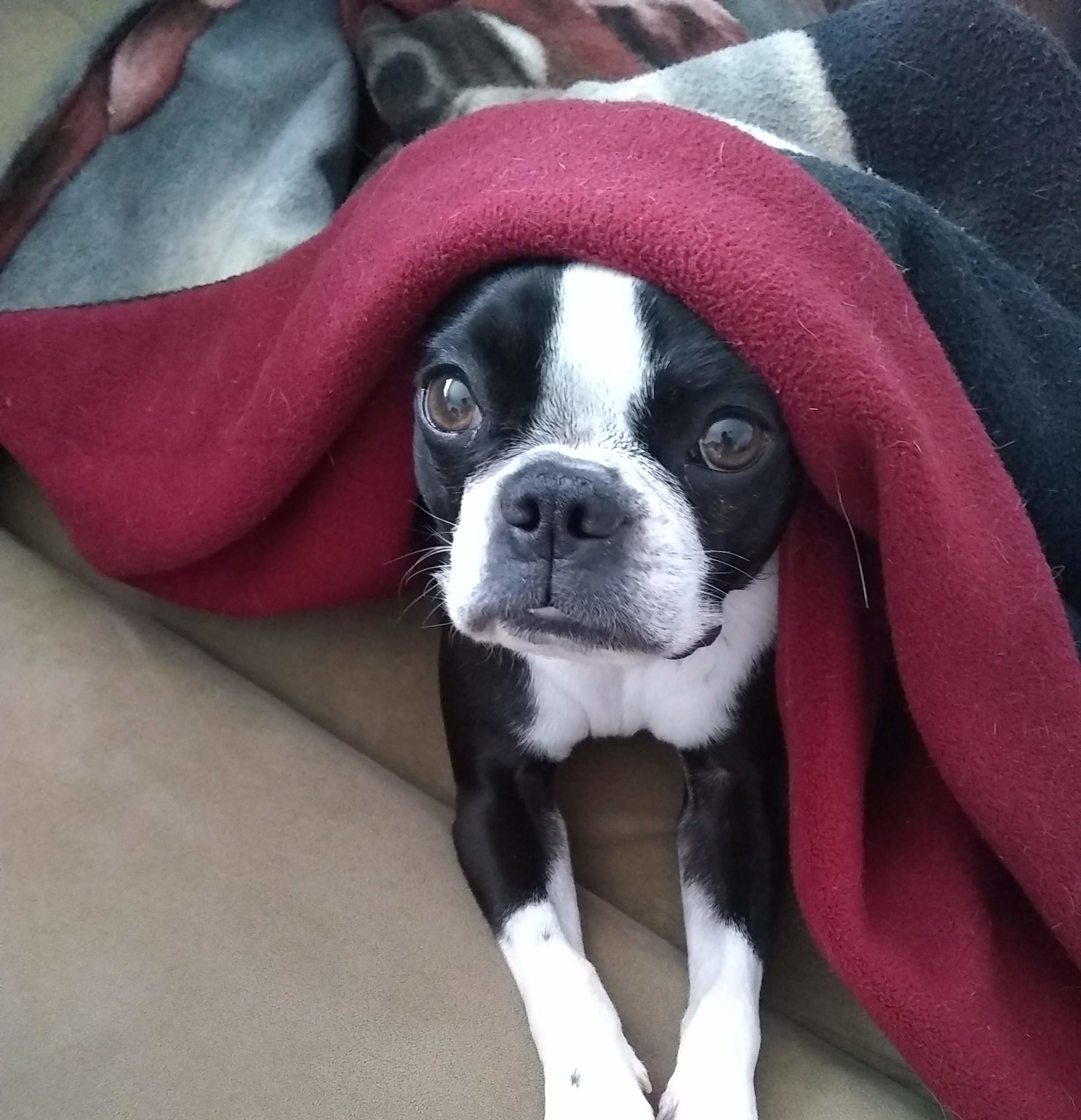
Pyometra is an infection in the uterus. Most cases are in dogs, although cats can get pyometra as well. Clinical signs may include drinking/urinating more than usual, not eating well, vomiting, lethargy, discharge from the vulva, and fever. A pyometra can be “open” where purulent discharge leaks out of the uterus into the vagina and out the vulva, or “closed” where the discharge stays locked up in the uterus. While both kinds get sick, closed pyometras tend to get sicker faster and are at greater risk for rupture or other complications. Pyometra is a very serious condition, and can easily lead to death within days.
Pyometra may be suspected based on history – a dog (or cat) that hasn’t been spayed and was recently (2-4 months previously) in heat and is now acting ill. Diagnosis may be confirmed with ultrasound, x-rays, and/or testing the vaginal discharge if present.
The treatment for pyometra is surgery to remove the infected uterus as well as the ovaries. This is the same basic procedure as a routine spay, but with additional challenges and risks. A uterus filled with pus is larger, more vascular, more inflamed, and more delicate than a normal uterus. There is the risk of rupture, which can spread the infection into the abdominal cavity. The incision in the abdomen has to be larger, and in most cases sterile saline is used to flush the stump of the uterus near the cervix, if not the entire abdomen. In addition, these sick animals are not as stable as a normal healthy spay and may have difficulties with anesthesia. Because of these factors, and because the surgery is done on an emergency basis, a pyometra surgery is much more expensive than a routine spay.
There are many reasons to postpone or not perform a spay when your dog or cat is young. These can include intention to breed, concern for anesthesia risks, wanting to maintain normal hormonal status until later in life, etc. However, the choice to not spay due to financial constraints often ends up in heartbreaking situations – not performing a routine spay may result in the need for a pyometra surgery later in life that costs 3-5 times as much. In some cases, if the surgery is not an option, humane euthanasia is the only remaining choice. Losing a patient to a preventable condition such as pyometra is one of the hardest things in my job. Spaying your dog or cat is strongly recommended, and there are financial assistance options available through various charities and/or low cost spay/neuter clinics if needed.

